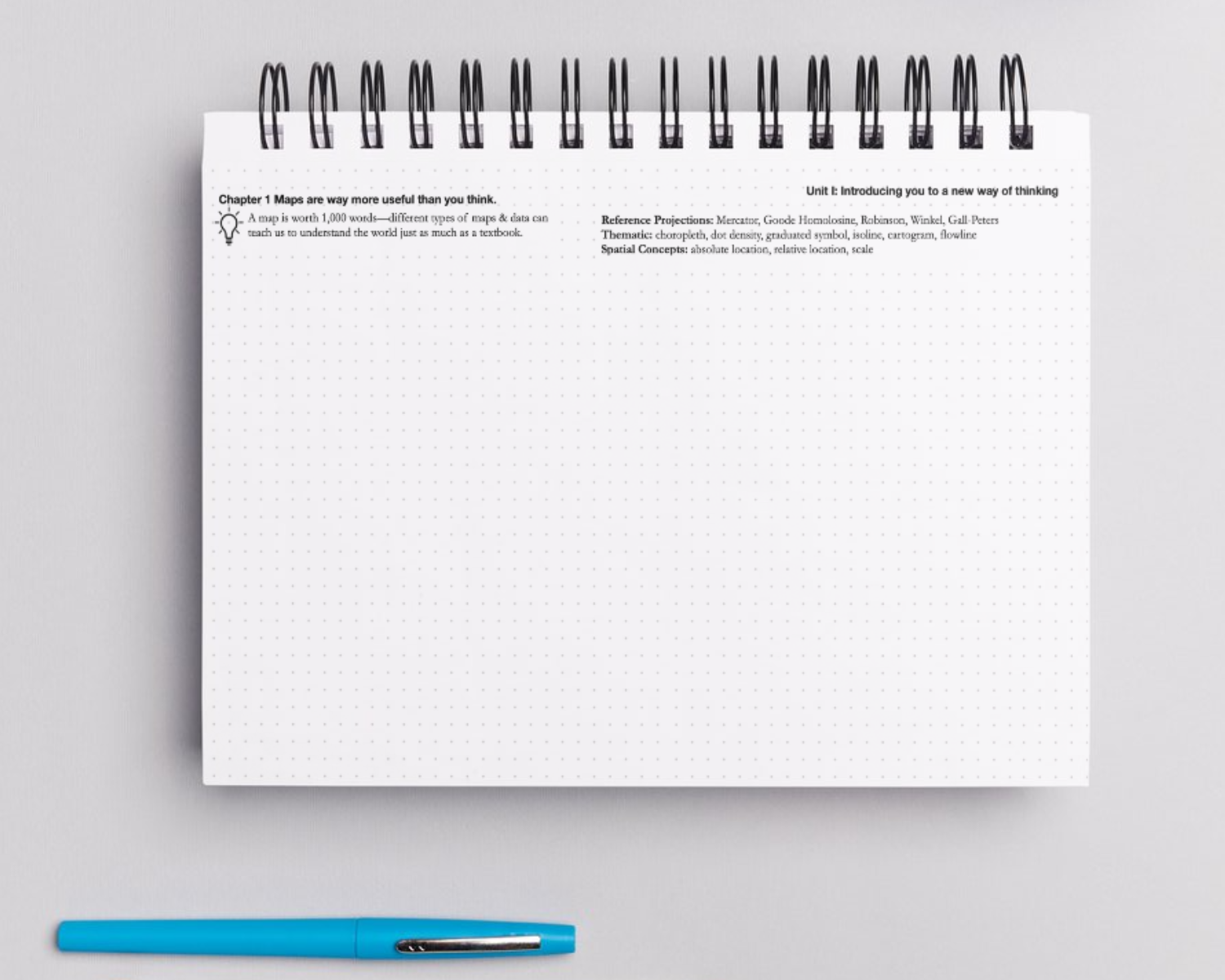You want the A, I get it. But you might be completely overlooking the very thing you need to get it.


AP students want to do well and want the reward of an A. They work tirelessly, pour hours into assignments, track every point and percentage, laser-focused on getting that A.
On the other side of the classroom, your teacher is crafting lessons and assignments that give you opportunities to learn, practice, and grow. While you are busy thinking about points, I am thinking about the exam I’m drafting in my head throughout a unit.
We both want the same thing–your success. I want you to have that A too, but there’s a disconnect that can sometimes make it seem like we’re working against each other.
From the student’s perspective, grades can feel like something given by a teacher, but that’s not what’s happening.
Grades are a reflection of your ability to demonstrate mastery of content and skills. When students begin to focus too narrowly on grades and points, it can start to feel like points are the ultimate measure of their hard work, leading to counterproductive questions and behaviors.

So, if you want the A, do this instead
Remember the teacher perspective
The teacher isn’t thinking about points because we’re playing the long game. We’re crafting lessons and assignments to build your understanding of content, and give you opportunities to practice and improve skills. When a student blows off an assignment because it seems small, or isn’t worth many points, the teacher is thinking about how that student will probably have a tough time on the exam question we have in mind that connects to that assignment.
As much as I want to say something to that student to get them back on task, at a certain point, I have to allow them to make their own choices, even when I know that choice is leading them down a rocky road.
So when that same student is panicking right before or after the exam and asking for extra credit or last-minute ways to improve their grade somehow, I’m too nice to say what I might be thinking…

Care about the grade, but focus on content and skills
It’s good that you care about your grade. It’s rewarding to teach students who care about their grades. That’s a very good thing. But keep your focus on understanding content and improving your learning and studying skills. That’s the safest way to get the grade you care about.
Come to class with questions about content
Ask questions! If you want to be successful, you need to become comfortable asking questions about content. Asking questions is part of the learning process. If you don’t ask questions, you’re not processing the content and not taking an active role in your learning.
- If you aren’t asking questions because you feel embarrassed, practice asking in an environment where you won’t be as nervous: coming up to my desk, ask it when I’m not addressing the entire class, come early or hang back a min late, swing by during flex, after school, lunch, etc.
- If you aren’t asking questions because you don’t know what to ask, start by considering the title of the chapter, the “what you need to learn” lightbulb box, and all of the terms. That’s your study guide for each chapter, so at the very least you can ask about one of those specific concepts.
Play the long-game, not the point game
Remember that how you’ll earn your grade will ultimately come from demonstrating your skills and content mastery, not the number of points you can accumulate. Assignments, homework, and in-class lessons all lead toward mastery assessments.

Your ability to perform well on a mastery assessment depends on the stability of your skill and understanding, and every day, assignment, lesson, and homework chapter is like a jenga block.
If you keep your focus on building a stable understanding of content and required skills, the grades are going to take care of themselves.
But you can’t expect to do well on these assessments if you missed too many classes, didn’t complete assignments, have blank pages in your notebook, taking poor quality notes, and not asking questions about content you’re required to learn.
Part Two: How to build a stable understanding at set yourself up for success
Use the tools that were built for you–your notebook and the website. These resources were custom built for your success, and to help you see how the units, and content within each chapter applies to the world you live in.
I redesigned both AP courses from their original CollegeBoard version to create something that isn’t just a boring list of content terms and vocabulary, but rather something that relates to our country, our world, and our future. If you are not taking full advantage of that, this course will feel dry and unrelatable.
Use the chapter titles!
The titles point you toward why this content matters or how it applies to the real world. It’s the bigger understanding I want you to remember years after you’ve moved on and forgotten some of the individual content.
How do I “use” the chapter titles?
- Always start with the titles. Read them and use them as a lens to approach the content and begin your learning.
- The title is what you are learning, the content are the individual pieces that will built this new understanding.

The section below is your chapter study guide–use it!
- The lightbulb is similar to the chapter title, but more specific to the chapter’s content.
- It clearly states what you need to learn, so it should be on your mind the entire time you are learning. This is how you’ll know what’s important and what’s less critical.
- Watch the video and use the study guide to plan your notes. Don’t try to learn the content the first time you watch. Watch once, without pausing, so that you can see the big picture, and make a plan for your notes and learning.
Terms
Concepts


Hit play & listen to the text
The text to audio feature of the website isn’t cheap, but it’s so effective that it’s worth the cost. Find a way to use it. Here’s some ideas:
- Listen and follow along with the text
- Listen and add/revise your notes
- Listen without your notebook during low-stakes downtime like on your way to/from school
- Listen before you watch & take notes
Course & Grade FAQs
Is there extra credit?
No. Remember what’s discussed at the top of this page. If you’re focused on building a stable understanding of content and mastering the necessary skills, then the grade will follow and take care of itself. Click here
Can I re-take the exam if I don’t like the grade?
Not exactly. Traditional exam re-takes are generally not available, but every student does get an opportunity similar to a re-take on the following exam. Each exam is cumulative, and past exam questions will appear on subsequent exams. Since those subsequent exams are always at-least double the points of the previous exam, everyone gets the opportunity to re-learn, improve their skills, and gain the benefit of a built-in retake to improve their grade. Click here
Can I turn in something late
The gradebook stays open for the entire semester so that you can stay focused on the long game and benefit from subsequent exam values replacing previous exam attempts in the gradebook, not to accept endless late work. But, reasonable accommodations will be considered for reasonable requests.
How are exams & quizzes graded?
If you got a 90% on an exam, you did not get 90% of the questions correct. You earned an A-, and Synergy is programmed to show you a percentage. The exams are written to present a challenge to every student with opportunities to demonstrate varying levels of mastery. On an exam like that, answering half of the questions correct does not mean you only learned half of the content you were responsible for learning and earned an F. The scoring on unit exams is more similar to how the AP exam, or the SAT/ACT is scored, you don’t need to get above 90% correct to get a good score.
Can you give us a study guide for exams?
YES! In fact, I already did. Your notebook, chapter titles, the “what you need to learn” prompt, and the list of terms is a thoughtful and strategically written guide to make it absolutely clear what you need to learn for each chapter, unit, and course. All exams and quizzes will be based on these resources.
How should I study for assessments?
If you are asking this question, you might need to answer another question first: what is studying? Many students get stuck in a trap where they think they are studying, fool themselves into feeling prepared, then perform poorly on an assessment, and get the false message that something is wrong with their intelligence or memory. Here’s a whole page with three sections dedicated to improving your study behaviors.
How do I improve my grade?
Start here. I know it can feel counterproductive, but if you want to improve your grade, you have to stop asking about the points and improving grades and start asking about the content and skills. Imagine you own a company, and you have an employee that only asks you how they can get a promotion and a pay raise, but never seem to focus on asking your or themselves how they can improve the quality of their work, and prove to their employer they are deserving of additional responsibilities and pay.
How do I improve my understanding of content?
MUCH better question! When it comes to understanding content, you need to first make an attempt to understand it on your own. You’re not really going to know what to ask of your teacher until you’ve gone through this process. This does not mean: try to figure it out yourself and only ask the teacher if you failed to understand. It actually means: you will have a much better understanding of the questions you need answered, and you’ll benefit much more from the discussion with your teacher.
